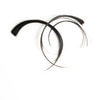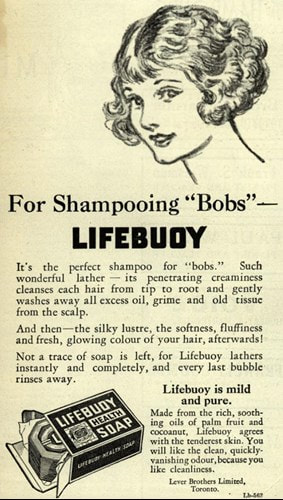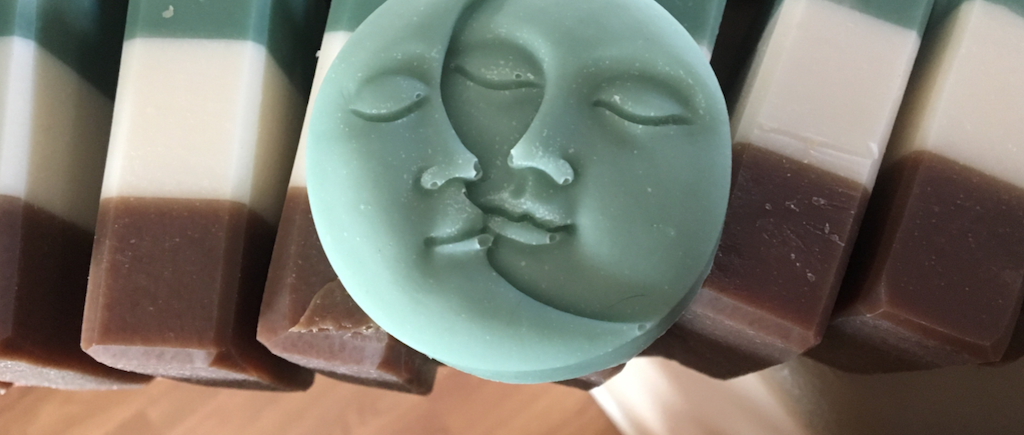|
Before modern liquid shampoo became widespread, hair care routines didn’t involve so much plastic waste. Now, we are conditioned (!) to believe we need liquid shampoo in plastic bottles that usually get disposed of rather than refilled, and solid soap is considered a niche. However, thanks to environmental awareness about plastic waste and renewed attention on some of the harmful effects of toxic synthetic ingredients in many liquid soap brands, shampoo bars are making a comeback. But where did the humble shampoo bar come from? And how did it fall out of use? Below we nerd out on the history of the cult zero waste beauty product, explore the role of British cruelty-free beauty pioneer LUSH in “reinventing” shampoo bar in the past two decades, and how we might be looking at bottle-free becoming mainstream again soon. Where Did Shampoo Come From? The word “shampoo” entered the English language around three centuries ago, and it originates from India in the colonial era. It is derived from the Hindi word champo and the Sanskrit root chapati (yes like the popular Indian flatbread), which is to press or knead. The practice of “shampooing” therefore meant to massage the scalp with fragrant oils, rather than hair washing as the word is understood today. The hair treatment was introduced to European societies when colonial traders returned with the local Indian custom of cleansing the hair and body with massage and oils. Shampooing – cleansing the excess oil and dirt from our hair – was also done using other natural methods, such as using vegetable starch and wood ash to absorb excess oil and wash hair. In the 19th century, people also started to use soap bars containing palm fruit oil and coconut oil to wash their body and hair. So the concept of using a packaging-free solid bars to clean our hair isn’t exactly “new” – it has been around for centuries, long before “zero-waste” even became a term. With the dawn of liquid surfactants that scientists created to efficiently remove dirt, a few opportunistic cosmetics companies jumped on the idea of developing products that marked the start of what would become a billion-dollar industry. We started seeing different types of commercial soap displayed on retail shelves in the 1930s and 40s: liquid shampoo, body wash and gels, liquid conditioners – all of which by necessity had to be packaged in containers. At around the same time, plastic as a material became favoured as a replacement for less convenient and more expensive forms of packaging such as paper and glass. The single-use/disposable personal care industry was thus born. The Rise Of Modern Bottled Liquid Shampoo Slowly, these liquid shampoos in plastic containers and bottles became widespread in almost every family bathroom. Though unarguably convenient to use, these products generate massive amounts of waste and neither consumers nor businesses considered the effect off their choices when it came to the lifespan of the container bottles. It is estimated that over a lifetime, the average person goes through 800 plastic shampoo bottles – the majority of which ends up in landfills or in our oceans, which are then further broken down into microplastics, choking marine life and contaminating our own water and food. Needless to say, recycling has never been and continues not to be the answer, with waste regulations and recycling infrastructure mostly unavailable in large swaths of the globe. As reports of the scale of our plastic pollution began to surface and headlines about the massive Pacific trash vortex became more widespread, environmentalists and concerned consumers became concerned about everyday consumption habits and the throwaway culture that was becoming pervasive. This heightened eco awareness saw the advent of the now worldwide “zero-waste” lifestyle, which initially began as niche grassroots concern that later morphed into today’s global movement. How LUSH’s Co-Founder Upended An Industry Over in the United Kingdom, a couple of alternative upstarts were looking to disrupt the personal care industry. In the 1980s, Mo Constantine, co-founder of cult beauty brand LUSH (known as Constantine & Weir, and later Cosmetics-To-Go at the time before they rebranded to LUSH in 1995) was struck by inspiration thanks to an unlikely source: Alka-Seltzer. The fizzing tablets led her to create the brand’s ubiquitous bath bombs, which were also the first product they sold ‘naked,’ aka without packaging. Shortly thereafter, Constantine and Stan Kryszta, the brand’s cosmetic chemist, sought to reinvent the traditional soap bar specifically for hair. Unlike other soap bars on the market at the time, which were based on oils and fats (the traditional recipe for soap), Mo and Stan came up with an innovative formula for a solid version of liquid shampoo. When they first launched their shampoo bar product in 1988 under the Constantine & Weir name, it became so popular that they successfully applied for and won a composition patent for their groundbreaking recipe. Years after the now famous shampoo bar was born in the kitchens that later became LUSH, the brand remains the keepsake of the invention, even though the original patent expired in 2011. Thanks to LUSH, eco-friendly beauty products have been on consumers’ radars like never before, as the brand has captured a (mostly) young and eco-conscious generation with their low waste range and naked store concept, with the brand reportedly saving around 30 million plastic bottles from landfills over the past year alone. Amid a recent public outcry on plastic waste, the company has even launched a carbon positive cork container for the shampoo bars, manufactured using regeneratively grown cork (which absorbs carbon from our atmosphere) and transported via sailboats. The Shampoo Bar Goes Mass LUSH shampoo bars are infused with blends of natural ingredients with cleansing yet soothing properties, such as cinnamon leaf oil, contain no preservatives, and most importantly, do not require any packaging or container. Compared to the average bottle of liquid shampoo, solid shampoo bars last around three times as long and only need be stored on a dish. In recent years, a plastic-free and zero-waste beauty movement has taken hold and become more mainstream. As well as LUSH‘s pioneering range, other independent beauty brands with a sustainability focus have also developed their shampoo bars, many of them featuring natural, plant-based and organic ingredients- brands like Lamazuna (France), Meow Meow Tweet (US) and Ethique (New Zealand) filled Insta feeds the world over with their low-waste, plastic-free modern bars to suit every eco warrior hair type. Even mainstream cosmetics corporations have caught onto the trend and launched eco-friendly and plastic-free beauty products, hoping to catch a share of this budding market. The shampoo bar crazy has also spawned a whole range of plastic-free bars from face moisturisers to pet soaps to hair conditioner, all formulated for various care concerns and all made available sans packaging. In the midst of the many environmental issues the planet is facing, from global warming to biodiversity loss, plastic pollution is one that we can easily tackle individually by making easy switches in our everyday habits. So go on, ditch the bottle and choose the (shampoo) bar- it’s an easy choice you can feel seriously good about. Editor’s Note: This article was updated with more accurate and complete information about the shampoo bar’s 1988 patent filing and origin story. from Green Queen Hair by Brian - The Beauty Blog
0 Comments
Your comment will be posted after it is approved.
Leave a Reply. |
Hair by BrianMy name is Brian and I help people confidently take on the world. CategoriesAll Advice Announcement Awards Balayage Barbering Beach Waves Beauty News Book Now Brazilian Treatment Clients Cool Facts COVID 19 Health COVID 19 Update Curlies EGift Card Films Follically Challenged Gossip Grooming Hair Care Haircolor Haircut Hair Facts Hair History Hair Loss Hair Styling Hair Tips Hair Tools Health Health And Safety Healthy Hair Highlights Holidays Humor Mens Hair Men's Long Hair Newsletter Ombre Policies Procedures Press Release Previous Blog Privacy Policy Product Knowledge Product Reviews Promotions Read Your Labels Recommendations Reviews Scalp Health Science Services Smoothing Treatments Social Media Summer Hair Tips Textured Hair Thinning Hair Travel Tips Trending Wellness Womens Hair Archives
July 2025
|
|
Hey...
Your Mom Called! Book today! |
Sunday: 11am-5pm
Monday: 11am-6pm Tuesday: 10am - 6pm Wednesday: 10am - 6pm Thursday: Closed Friday: Closed Saturday: Closed |





 RSS Feed
RSS Feed